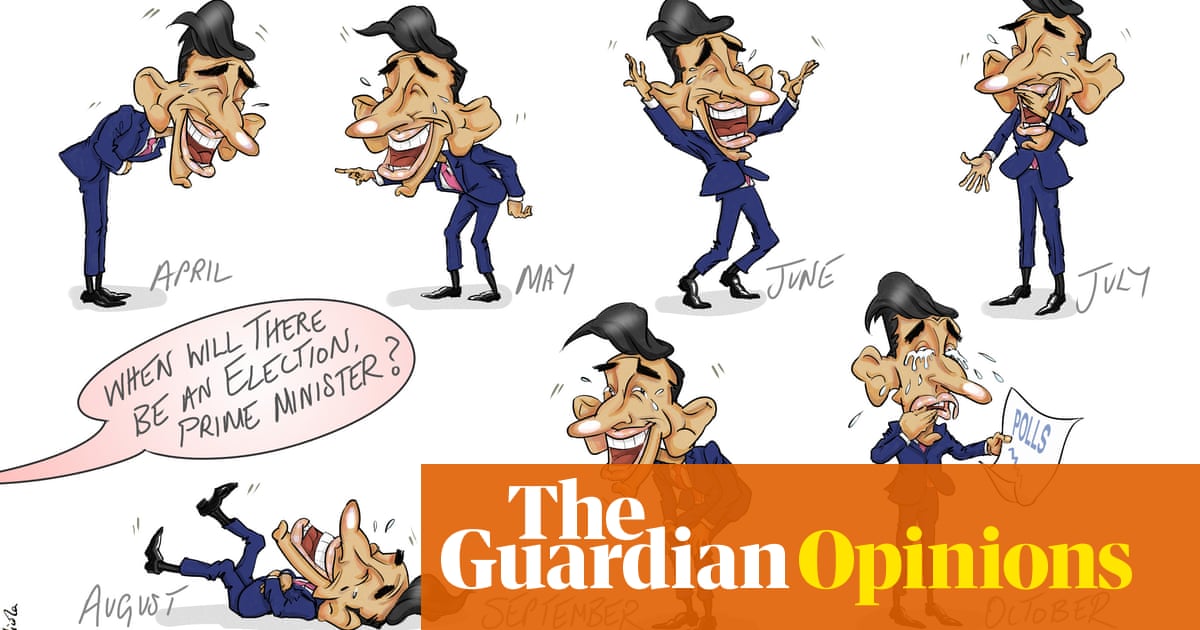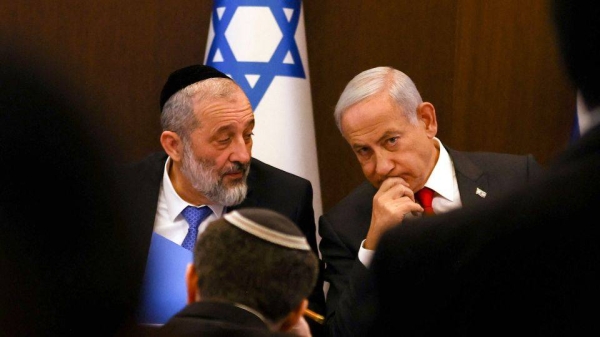
For two weeks’ holiday on a small island in the middle of the Atlantic, I and everyone else promised to concentrate on marveling at the beauty of this tropical island, the wonderful cuisine, the local hospitality and all its other attractions … and I set my mind to avoiding the news. Apparently, detoxing from politics, and from the daily grind in general, is good for recharging the batteries and for some deep reflection, before returning with new vigor and a spring in one’s step to deal with the topsy-turvy world we live in.
Honestly, I really did my best, though sometimes I couldn’t stop myself taking a fleeting glance at my phone or the TV, mainly out of a concern that I may not have a world to return to and be forced to spend the rest of my life on a freak-of-nature volcanic island. Tankers were being seized in the Gulf and off Gibraltar; Boris Johnson was looking increasingly likely to be British prime minister; and Donald Trump was continuing to insult everyone who was not himself, even sending American citizens “back home” because their skin colour confuses him.
Amid all this there was the small matter of the re-run of the Israeli elections, which no one had expected a mere five months after those in April, due to the inability of Prime Minister Benjamin Netanyahu to form a coalition. Due to the frantic nature of of Israeli politics, my absence of two weeks might mean not recognising who was in the running and what new alliances or even new political parties had been formed. As it happens, the rush to form new ad-hoc political alignments that will probably not last beyond one round of elections has turned out to be even more frantic than usual. The heads of party leaders who failed are rolling for all to see, new (or recycled) leaders have been selected and parties are merging to make them appear more united, caring less about their egos and more about the well-being of the electorate. With the looming Aug. 1 deadline for registering lists, most parties are trying to present a more attractive front to voters, but mainly in terms of personnel than of ideas, policies or manifestos.
Politicians’ attempts to reinvent themselves, even if they have been in frontline politics for decades, are pathetic. The two parties that won the most seats in April, Likud led by Netanyahu and Blue and White led by Benny Gantz, have retained their leadership and their lists, and their satellite parties from left and from right are buzzing around them like bees round a hive. But their failure to form a coalition last time, and the manner of that failure, sent a poignant reminder to the smaller parties of their crucial role, and how every increase or decrease in their power may affect their impact on Israeli politics for the next few years.
The last failure to form a government handed an unexpected opportunity to the opposition parties to topple Netanyahu, who last week surpassed the record of Israel’s first prime minister David Ben Gurion, the country’s founder, as its longest serving prime minister.
Yossi Mekelberg
On the left, two of the main parties, Labor and Meretz, ditched their leaders and elected new ones, Amir Peretz and Nitzan Horowitz respectively; while former prime minister Ehud Barak formed a new party, Democratic Israel, whose main aim is to rid the country of Netanyahu. The reappearance of Peretz and Barak epitomises the weakness of the left — its inability to produce new and exciting leaders or ideas, while resorting to those that failed in the past. Peretz was Labor’s leader more than 10 years ago, but when he joined the government,he insisted on being given the prestigious defense ministry rather than one where he could promote the socio-economic interests of those who voted for him. The fiasco of the 2006 war in Lebanon was a painful demonstration of how ill-suited he was for this position, and ended his ministerial career. In one swift move last week he blocked any chance of a left-wing Labour-Meretz-Democratic Israel bloc by reserving second place for Orly Levy-Abekasis, previously Knesset member in Avigdor Lieberman’s extreme right-wing party.
The last failure to form a government handed an unexpected opportunity to the opposition parties to topple Netanyahu, who last week surpassed the record of Israel’s first prime minister David Ben Gurion, the country’s founder, as its longest serving prime minister. But it seems that Labor is determined to squander this opportunity in the most irresponsible manner, though the decision of Meretz, Barak and Stav Shaffir (who defected from Labor) to run together may have given the left some lease of life and a coherent social-democratic platform with a dovish flavour.
On the right, things haven’t stood still either. Likud’s satellite parties, especially the religious-nationalist-populists, are trying to make amends after running in three different parties, which cost them dearly in April and prevented the formation of what could have been the most right-wing government in the country’s history. It seems a genuine possibility that former Justice Minister Shaked, who is ideologically probably the most dangerous politician in Israel, may be the unifier of the ultra-right.
Lamentably, too much energy is being channelled into the formation of parties and lists, and promoting personalities, and too little into how Israel will address the massive challenges at home and abroad that it will face in the coming years and decades.












